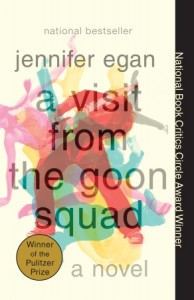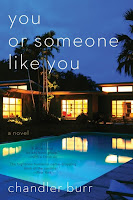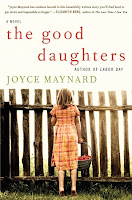 Elizabeth Strout is the kind of writer whose novels have such a solid moral core that you don’t even realize their depth until you’re at the end, teary-eyed, and wondering how she managed to be so subtle in her prose, yet so overwhelmingly apparent in her themes both at the same time. But wait, let me back up a little. There’s a subset of American fiction, primarily written by literary writers, people like Strout and Marilynne Robinson, that I would equate to the “old woman on her deathbed” narrative that sometimes defines our Canadian canon, and that’s the “pastor going through crisis” trope (would we call it a trope? Do I even remember what that word means?) that you find in novels like Home or Gilead. So, when I first started Abide with Me, I thought, ‘oh, here we go, Strout’s just putting in her two cents worth in terms of that American tradition.’
Elizabeth Strout is the kind of writer whose novels have such a solid moral core that you don’t even realize their depth until you’re at the end, teary-eyed, and wondering how she managed to be so subtle in her prose, yet so overwhelmingly apparent in her themes both at the same time. But wait, let me back up a little. There’s a subset of American fiction, primarily written by literary writers, people like Strout and Marilynne Robinson, that I would equate to the “old woman on her deathbed” narrative that sometimes defines our Canadian canon, and that’s the “pastor going through crisis” trope (would we call it a trope? Do I even remember what that word means?) that you find in novels like Home or Gilead. So, when I first started Abide with Me, I thought, ‘oh, here we go, Strout’s just putting in her two cents worth in terms of that American tradition.’
But what a rich tradition it is, and what a rich novel Abide with Me turned out to be. The story of a widower who is the minister of a small town in New England where the rustic setting not only traps its inhabitants during the long, cold winter, it turns them, often, against one another through fits of gossip, jealousy and petty indiscriminations. Tyler Caskey arrives young, bright-eyed and newly married. His wife, Lauren, is almost too big for the town with her bushels of red hair and big city ways. She spends too much money and isn’t all that interested in being a minister’s wife. Not to mention the fact that the town isn’t all that crazy about her, either. But then, she dies a horrible, tragic death (and I’m not spoiling anything here), and Tyler’s lost his way, and the novel turns — it becomes about grieving, about loss, about life after tragedy, and the subtle ways Strout moves through Tyler’s experience don’t even become readily apparent until the end of the novel, when you fully understand how hard it must have been for him to lose the woman he loved, but also the life he expected to lead.
Not only is Tyler suffering from the loss of his wife, but it seems everyone else in town has undergone some sort of trouble. From adultery to actual crimes, Strout’s novel pits the concept of grief up against some very real problems that exist within the human condition, perhaps to explore how grief affects people in many different ways, that it comes in many different forms. By the end, the book moves into a separate stage, and it is through the idea of healing, whether it’s by telling the truth finally, by allowing yourself to be forgiven, or by respecting the fact that sometimes you simply can’t continue, the entire town can’t help but move through Tyler’s grief with him, and it has a very poignant impact on everyone.
I adored this novel. I was so taken by the character of Katherine, Tyler’s five-year-old daughter, who so vicerally experiences her mother’s death that my heart broke on every page, and the sheer inability for the people around her to see how and why she’s suffering (with the exception of her father who, while baffled by his daughter’s behaviour, clearly loves her more than life itself) or to give her the hand she needs felt so real to me, primarily because I too lost my mother, but not at such a young age. All in all, the novel, set in the 1950s, explores gender roles, explores the banality of small-town life, the suffication of spending so much time indoors when the snow is piled high and all the women can do is make beds and polish floors to keep themselves sane, and it also explores the idea of faith, how it can stretch and bend, but also break, just at the very moment when you need it the most — and this is a theme for which I am quite familiar with in my own life these days.
I’m amazed that I had these novels just sitting collecting dust for so long. But I am a true believer in fate when it comes to reading. You pick up a book at the right time for you to be reading that book — if you don’t finish, it’s not always the book’s fault, it’s just perhaps not the right moment to be reading. I needed both Amy and Isabelle and Abide with Me this month. They have enriched my life in ways that I find hard to express — and given me something to aspire to, Strout’s writing is simple exquisite.
READING CHALLENGES: Off the Shelf.
 What a rare book Jennifer Egan’s A Visit From the Good Squad turned out to be for me — one utterly and completely deserving of its rather exuberant praise and awards. This book swept me away from start to finish and the quirks that I would normally complain about (a la the entire chapter by the young Alison Blake) charmed me to no end because the writing is just that good. It’s more of a series of linked stories, Venn Diagrams of people’s lives as they interact, slip away, and then come into contact with someone else who can complete the tale rather than a traditional novel. The format feels innovative and new — parts of the book are told out of chronological order, some characters flicker in and out like fireflies, but Egan masterfully holds it all together with deft strokes and impressive sentences. I could not put this novel down.
What a rare book Jennifer Egan’s A Visit From the Good Squad turned out to be for me — one utterly and completely deserving of its rather exuberant praise and awards. This book swept me away from start to finish and the quirks that I would normally complain about (a la the entire chapter by the young Alison Blake) charmed me to no end because the writing is just that good. It’s more of a series of linked stories, Venn Diagrams of people’s lives as they interact, slip away, and then come into contact with someone else who can complete the tale rather than a traditional novel. The format feels innovative and new — parts of the book are told out of chronological order, some characters flicker in and out like fireflies, but Egan masterfully holds it all together with deft strokes and impressive sentences. I could not put this novel down.







